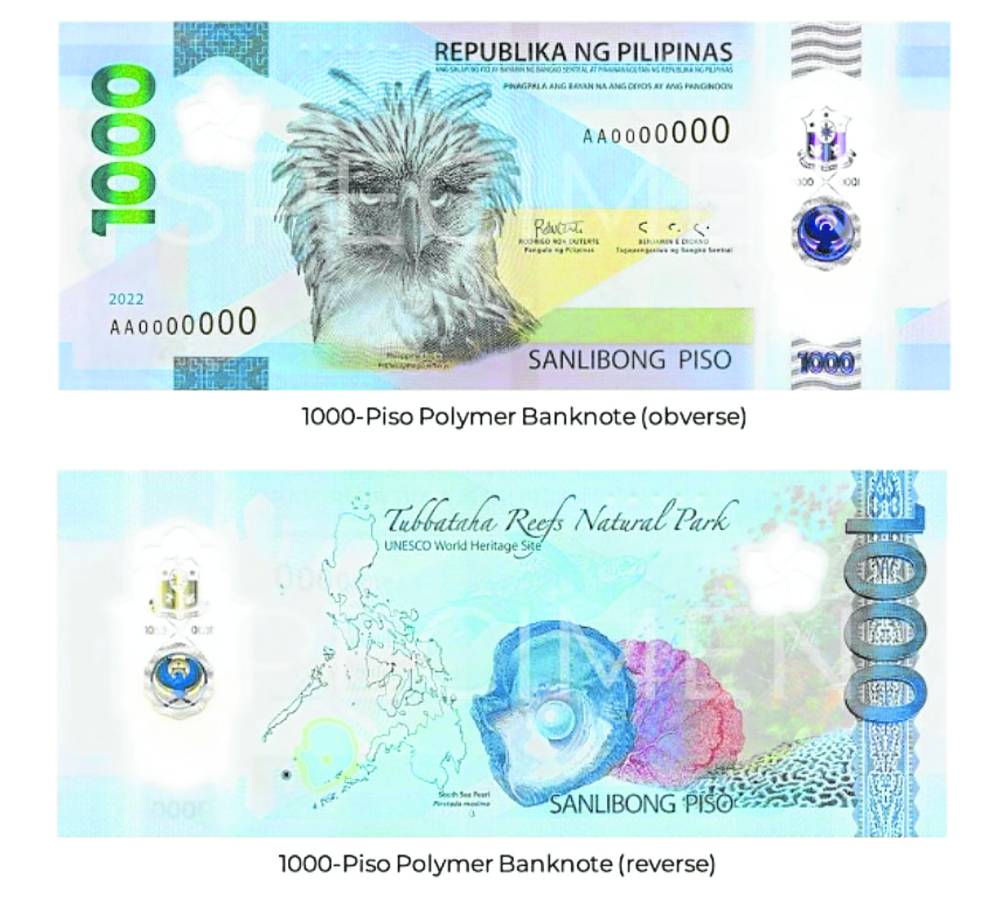
MORE DURABLE The new1,000 peso bill —BSP.GOV.PH
MANILA, Philippines — The newly issued P1,000 polymer banknote is only worth its face value and should not be sold, traded or bought for any other amount, the Bangko Sentral ng Pilipinas (BSP) said on Friday.
The BSP issued the advisory in an apparent anticipation of a similar scenario that developed since the introduction of the P20 coin in December 2019.
The bicolor coin, which is in circulation concurrently with the P20 bill, continues to be offered by online sellers for as much as P20,000 apiece supposedly because these are “brilliant uncirculated” samples. The BSP said there were no such P20 coins.
The central bank said that, similarly, the new P1,000 bill would circulate alongside the older paper banknote.
Just like the paper version, the polymer banknote is intended to be used for payments and transactions, instead of novelties for collectors’ enjoyment.
“The new P1,000 polymer banknote strengthens the BSP’s efforts to respond to pressing public health and safety concerns due to the COVID-19 pandemic, promote environmental sustainability and deter counterfeiting,” the regulator said.
Made in Australia, the new banknote is being touted as “smarter, cleaner and stronger” than the paper banknote.
First, it was produced using advanced technology, with an intricate design and complex security that make counterfeiting “significantly more difficult and costly.”
Also, the polymer banknote may be sanitized with less risk of damage. And, in terms of its impact on the natural environment, polymer banknotes are more environment-friendly because it requires less water, energy, and other resources to make and are recyclable.
RELATED STORY: